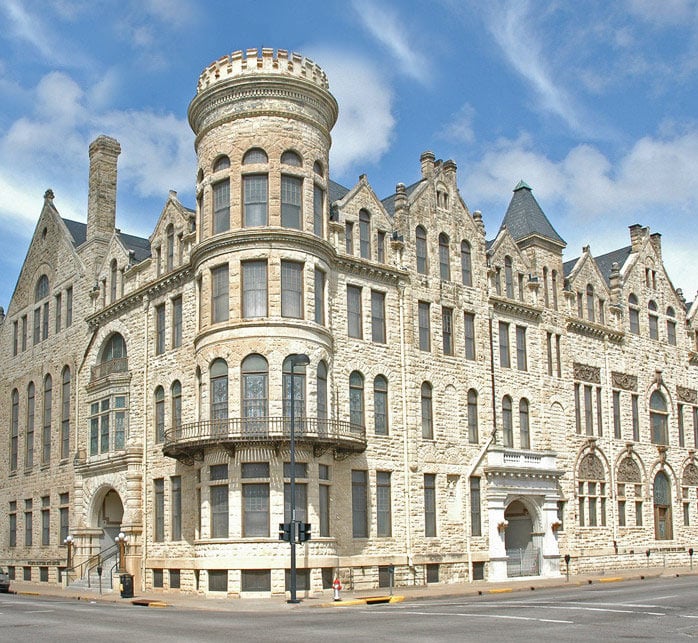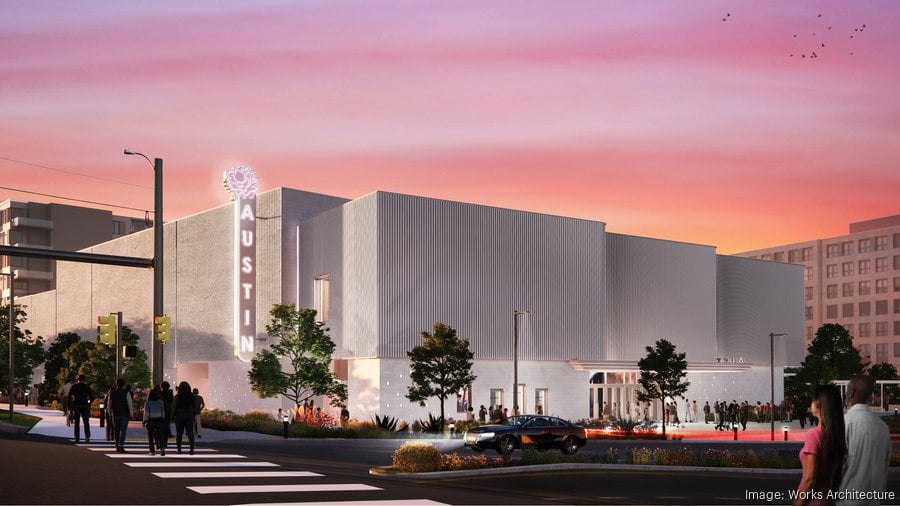In 2017, a small firm known as Beaty Capital Group had an formidable concept. With the intention to save among the historic Masonic halls all through the Midwest, they might start shopping for these properties up, restoring them, and making them into dwell music venues. The idea took form beneath the corporate title Temple Reside.
Their first buy was of a temple in Fort Smith, Arkansas initially inbuilt 1928, and added to the Nationwide Registry of Historic Locations in 1992. With an 1,100-capacity auditorium, it was the right mid-sized venue for the Arkansas city that wanted one, and would be certain the historic constructing wouldn’t be topic to the wrecking ball.
Subsequently, comparable historic Masonic temples have been bought in Cleveland, Ohio, Columbus, Ohio, Wichita, Kansas, and Peoria, Illinois. The Masonic Lodge in Columbus known as The Athenaeum was inbuilt 1899. The Masonic Auditorium on Euclid Ave. in Cleveland was initially bought by Temple Reside for $725,000, and so they subsequently spent some $14 million renovating it, chatting with the dedication the corporate put into the venture.

Over time, these live performance venues turned beloved and very important to each touring acts coming to city who won’t cease if it weren’t for these mid-sized venues, and by locals who beforehand would complain how these acts would by no means cease of their city. However all that fell aside beginning in early September when Temple Reside venues shuttered with little discover, leaving bands scheduled to play in a lurch, and the way forward for these historic buildings unsure.
“We decided it was greatest to be definitive so the choice was made to drag down the remaining reveals,” stated Lance Beaty, CEO of Beaty Capital Group. He blamed a number of components for the corporate’s struggles, together with lingering points from the COVID-19 pandemic, and ticketing techniques that disfavor impartial promoters.
“We’re merely an outsider in an insider’s enterprise. Regardless of how a lot cash you throw at it or how artistic you suppose you might be, if you happen to’re not on the within, you’re not in.”
That is the story many impartial venue homeowners and promoters are telling all throughout the USA, and it’s about to get a lot worse. As Saving Nation Music chronicled in August, necessary impartial venues are shutting down left and proper, from the Crystal Palace in Bakersfield, California, to Duke’s in Indianapolis, to the Coupland Dancehall in Texas (replace pending).
In the meantime, one of many catalysts for the catastrophic implosion in mid-sized impartial venue possession in the USA is about to make issues a lot worse. Reside Nation has determined they’re investing some $1 billion in small golf equipment, mid-sized venues, and bigger venues in 18 mid-sized markets throughout the USA. This implies the corporate that already dominates a lot of dwell touring and venue reserving in main cities is coming for different markets as effectively.
A few of the markets Reside Nation says they’re coming to are:
Allentown, PA – Atlanta, GA – Birmingham, AL – Denver, CO – Indianapolis, IN – Memphis, TN – Milwaukee, WI – Nashville, TN – Orlando, FL – Portland, ME – Portland, OR – Pittsburgh, PA – Raleigh, NC – Richmond, VA – Riverside, MO – Seattle, WA – Shakopee, MN – Virginia Seashore, VA
And LiveNation just isn’t alone. America’s second-largest live performance promoter, AEG, is enacting an analogous technique to nook the mid-sized market. This contains Nashville’s latest venue The Pinnacle (4,500 capability), Atlanta’s The Jap (2,300 capability), Boston’s Roadrunner (3,500 capability), Brooklyn’s Brooklyn Metal (1,800 capability), and Denver’s Mission Ballroom (4,000 capability).
Simply this week, AEG revealed the architectural renderings, and broke floor for the brand new 4,000-capacity indoor leisure venue they’ve deliberate for Austin, TX opening in early 2027 on Riverside Drive east of downtown, close to the place the rock venue Emo’s relocated.

“This new venue is designed to enhance the combo of legendary and iconic venues that exist already in Austin,” vice chairman of AEG Presents Southwest Robin Phillips stated. “We’re not right here to compete with Austin’s music legacy. We’re right here to honor it, and in doing so, create a stage for much more voices, extra tales, and extra sound.”
However the query for a lot of of Austin’s small to mid-sized venues is that if this may actually be the case. There are already considerations over so many venues competing for a similar quantity of client {dollars} in Austin, and contraction in music venues, together with legendary ones serving music communities that usually develop into a diaspora when the venue shuts down. In the meantime these Reside Nation and AEG-owned venues proceed to attempt to enhance ticket costs to the purpose the place dwell music is rapidly turning into a luxurious merchandise unattainable by common followers.
Reside Nation CEO just lately sparked off a firestorm by saying at CNBC’s Sport Plan convention in Los Angeles, “Music has been underappreciated. In sports activities, I joke it’s like a badge of honor to spend 70 grand for a Knicks courtside [seat]. They beat me up if we cost $800 for Beyoncé. We’ve loads of runway left. So whenever you examine ticket costs going up, the typical live performance value continues to be $72. Strive going to a Lakers sport for that, and there’s 80 of them. The live performance is underpriced and has been for a very long time.”
And it’s not simply the venue possession and the ticket costs that these giant firms are utilizing to manage the market. It’s the ticketing firms themselves, facilitated partly by the Reside Nation/Ticketmaster monopoly. Ticketing is one solution to squeeze out impartial and regional opponents. Lance Beaty of Temple Reside particularly cites the shortcoming for impartial promoters to entry massive ticketing techniques as one of many causes they have been compelled to close down.
As new mid-sized venues managed by massive dwell music firms are erected, historic ones operated by impartial firms are shutting down. And it’s typically these extra impartial venues who’re keen to offer extra alternatives to native performers, to try to maintain costs extra inexpensive for his or her communities, and to offer again to the communities the place they’re situated as a result of they’re operated by individuals who dwell there.
Music was already going through challenges with the gulf between the have’s and the haven’t’s placing strain the musical center class. Now the small and mid-sized venues, markets, and artists that do exist are being focused by the most important music promotion firms in music to convey them beneath their sphere of affect as effectively.
– – – – – – –
In case you discovered this text helpful, think about leaving Saving Nation Music A TIP.

